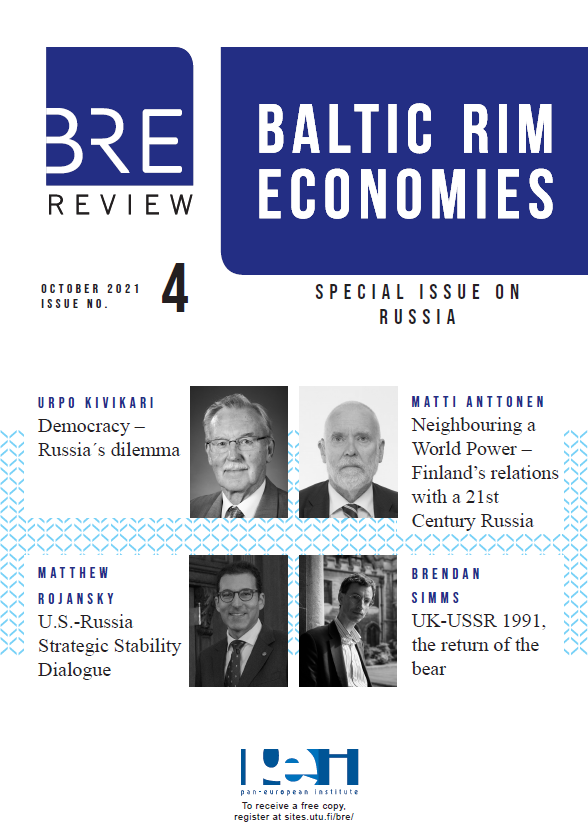The Impact of "New Public Management" on Russian Higher Education
The higher education reform underway in Russia is part of a much broader state reform project. Launched in 2004 at the start of Vladimir Putin's second term, this "administrative reform" grants the federal state the means to reclaim the public sphere, which largely escaped from its control during the 1990s. Energy incomes having considerably improved the public finances in the 2000s, the state can now consider reinvesting in and restructuring the public sphere as a whole. Its involvement cannot be seen as the construction of a "welfare state," but comes rather closer to an entrepreneurial state at the head of sectorial trusts aiming to be competitive on global markets. Such as it appears today, the restructuring of higher education is key to understanding how the formation of this entrepreneurial state is conceived and what possible structural uncertainties could arise.
This paper is based on the seminar presentation "Higher Education in Russia, Potential and Challenges," which took place on 28 January 2008 at the Institut français des relations internationales (Ifri).
Higher Education in Russia: How to Overcome the Soviet Heritage?
Russia's higher education (HE) reform, begun 15 years ago, was intended to provide a response to the challenges of the new post-industrial, high-tech economic development model. During the course of the reform, many of the negative features inherited from the Soviet period (ideologization, complete state-ownership of assets, excessive centralization of decision-making) were overcome. However, many characteristics of the Soviet system have turned out to be highly resilient, right up to today: the separation of science and education, the socio-humanitarian science sector remaining behind the natural and technical sciences, and the gap between the "elitist" and the "mass" segments. In the initial stages, the problems of reform were forced into the background, behind the much more acute problem of survival. The real window of opportunity did not appear until the start of Vladimir Putin's second term as president, when favorable economic (potential to increase budget financing) and political (consolidation of the team of reformers) conditions were created.
This paper is based on the seminar presentation "Higher Education in Russia, Potential and Challenges," which took place on 28 January 2008 at the Institut français des relations internationales (Ifri).
Higher Education, the Key to Russia's Competitiveness
In terms of higher education, Russia displays indicators worthy of enthusiasm: a high level of people benefiting from higher education, an increase in the number of students and the multiplication in the number of higher education establishments. Higher education is increasingly in demand, since diplomas have both professional and social value. This educational boom seems to correspond to the Russian authorities' declared aim to develop a 'knowledge economy'. After a period of crisis during the 1990s, public policy in this domain is gaining strength. Nevertheless, questions remain unanswered: will this policy be pursued after the presidential elections of March 2008 and will it be able to take on the challenge that Russian growth represents?
This paper is based on the seminar presentation "Higher Education in Russia, Potential and Challenges", which took place on 28 January 2008 at the Institut français des relations internationales (Ifri).

Representign Private Interests to Increase Trust in Russia-EU Relations

Moscow's Counter-Terrorism Drives the Islamization of the North Caucasus


The "Greatness and Misery" of the Higher Education in Russia
Due to its Soviet legacy, Russia has gained a reputation for having a well-trained population and efficient educational system. The facts on the ground are obviously more ambiguous, however. The veritable 'boom' of higher education and the good results of some well-known universities hide the more general fall of average performances and the devaluation of diplomas. Efforts to reform the system are meeting both structural constraints and corruption practices within the educational community. This makes a genuine assessment of Russian degrees dufficult to achiev. In addition, the 'privatization' of large sections of the education system has rendered the problem of inequality of access even more acute.
Russian Scientists: Where Are They? Where Are They Going? Human Resources and Research Policy in Russia
This article analyses the evolution of human resources in the field of research since the end of the Soviet era, with particular focus on the phenomenon of the ever-increasing age of experts, the divide into the scientific community and the 'brain drain'. Public policy in the area of managing human resources and its results are examined against this backdrop. A set of recommandations is formulated in conclusion.


HIV/AIDS in Russia, the epidemic too long ignored
With more than one million HIV-positive people, Russia is one of the countries most affected by HIV/AIDS. The first cases appeared in the USSR in 1987 in the south of Ukraine (port of Odessa). Since then, the number of HIV-positive people has steadily increased.
Support independent French research
Ifri, a foundation recognized as being of public utility, relies largely on private donors – companies and individuals – to guarantee its sustainability and intellectual independence. Through their funding, donors help maintain the Institute's position among the world's leading think tanks. By benefiting from an internationally recognized network and expertise, donors refine their understanding of geopolitical risk and its consequences on global politics and the economy. In 2025, Ifri supports more than 80 French and foreign companies and organizations.







